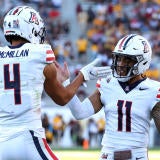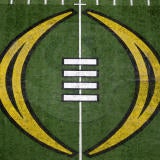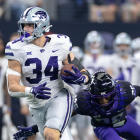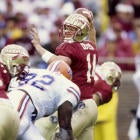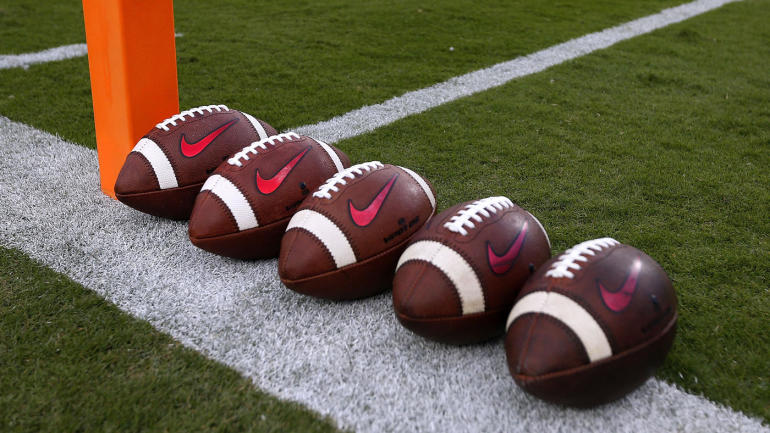
The NCAA Gambling Working Group will propose the first-ever standardized national player availability report for college sports, two sources told CBS Sports.
Later this month, the working group will propose a pilot program that would have coaches list players as "available," "possible" or "unavailable" for that week's game without mentioning a specific body part or injury.
A heightened educational component for athletes and staff would also be included. Currently, athletes are not allowed to gamble on sports sponsored by the NCAA.
If adopted, the proposal would be in place for the 2019 season. It would be instituted because of concerns regarding the integrity of college games in this new era of state-sponsored sports gambling.
That step is thought to be as far as the NCAA can go considering concerns over federal privacy laws. Even then, a national injury report could be potentially divisive.
College football coaches are often noted for their lack of transparency when it comes to releasing injury information.
"I think as coaches we're probably always wired not to give away the game plan," Baylor coach Matt Rhule said. "We try to do what's best for our kids. I think it has to be a bigger conversation."
Washington State's Mike Leach, for example, has been strictly against releasing any injury information.
When informed of the proposal, Texas coach Tom Herman said, "If I said 'unavailable,' I still want the right to make that a game-time decision."
Those sorts of details have yet to be worked out, according to a source.
The Big Ten last year asked the NCAA to consider developing a national football injury report. Ohio State athletic director Gene Smith advocated a "modified version" of the weekly NFL injury report (designations of "probable," "doubtful" or "out").
Since the 1940s, the NFL has released an injury report. Currently, NFL teams are required to release three practice participation reports during the week. Also, NFL teams are mandated to provide a game status report on Friday (for Sunday games) and in-game injury reports. Broadcast partners commonly use those in-game reports.
However, professional leagues don't have to deal with federal privacy laws in their injury reports. The Family Educational Rights Privacy Act (FERPA) and the Health Insurance Portability and Accountability Act (HIPAA) keep an individual's medical information private.
All of this is essentially intended to provide the most accurate information for bettors to keep the games from being corrupted. With the new gambling laws, college sources are already worried about injury information leaking out. That information could be used to get an unfair betting advantage and defraud the system.
"They've got to do something. They leave themselves open to corruption," said Tom McMillen of college sports. McMillen is the president of Lead1 Association, which represents FBS athletic directors.
Every decade since the 1940s, college sports has endured at least one major point-shaving scandal.
"We just have a concern an accusation is going to be made -- facts or not -- that someone is putting something out for gamblers," said Todd Berry, executive director of the American Football Coaches Association. "The reality of it is we recognize that, back in the 1970s and 1980s, we had some pretty high-profile [corruption] cases."
It is not known if the pilot program would extend beyond this season. CBS Sports reported in September 2018 that half of FBS conferences supported a national injury report.
For the last seven years, from 2011-17, ACC coaches issued injury reports for conference games only. Two days before any game, they were compelled to list injured players probable, questionable, doubtful or out.
The reports were only a "guideline." There was no enforcement.
"There were no consequences to baiting and switching and violating [the ACC injury report]," an ACC source said.
The Big 12 this week is discussing a similar injury report for its conference, according to the Associated Press.
A national injury report was considered a discordant issue since the Supreme Court allowed states to decide whether to legalize single-game sports gambling. That decision was handed down a year ago next week.
Former NBA commissioner David Stern told an Elon University gambling symposium last week that college students are at greater risk than others. "I think that college kids can be more easily influenced, especially in potentially corrupt cultures," he said.
Tennessee is soon expected to become the eighth state (including Washington, D.C.) to allow single-game sports gambling. Experts have said that number could grow to 30 states within five years.






